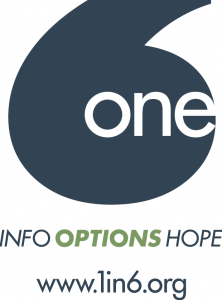You can leave this site quickly.
Learn more about Internet safety.
From 1in6: On Learning
School’s always in session.
With the start of the school year, I’m reminded of my surprise when my time in graduate school stirred so many unconscious reactions to my childhood sexual abuse. Recognizing what was happening eventually allowed me to manage those feelings. And it actually reinforced some valuable lessons about healing.
But I was slow in making the connection. After all, no one warned me. And I’d dealt with all that, years before…. hadn’t I?
There were days I went to class mildly panicked, mystified at what was happening.
I was no kid when I began the graduate program. Already in my 50s, I’d had a long career in child protective services. And it had been twenty years since I first came to terms with having been sexually abused in my adolescence by my parish priest, a man I’d seen as a mentor.
After much therapy, study and self-reflection, I was well into my healing. For several years, I’d been speaking and writing publicly about my experience as a survivor of sexual abuse and the Catholic Church’s missed opportunity to hold its leaders accountable for their failure to protect children. I was proud of my accomplishments. I knew a lot about the dynamics of abuse. I was doing fine.
But I’d never stopped to consider that a program that included dependence on an assortment of highly respected men and women, who had power over my future, could possibly resurrect issues around trust and safety. Silly me!
There was one senior professor in the program to whom I felt drawn. He had a wise and nurturing manner—a gentle man, who seemed like someone in whom, after all these years, I might find a positive mentor. He taught a short course called “Managing Self,” described as a guide to recognizing and overcoming barriers to successfully achieving one’s goals. I signed up.
But instead of helping, the feelings intensified. A few weeks into the class, I met privately with the professor to discuss my struggle.
I described my experiences in child protection and my advocacy work. In the course of the conversation, I told him about the abuse by the priest, and my wish to use what I’d learned in my own recovery to work in the sexual-abuse-prevention field.
His response startled me.
He told me that I needed to “get over it.” He advised me that focusing on child abuse was just getting in my way and that I needed to put it behind me. He told me a story about a slightly-crazed man who wasted his whole life trying to get a law passed to correct what he perceived as an injustice.
At the time, I was enraged. I told him that I’d tried that route of burying the feelings and I knew he was wrong. I pointed out that only after I stopped ignoring and finally faced those feelings had my healing begun. In that moment, I dismissed him as a potential mentor, but I regained my sense of self.
Instead of disappointment, I was finally reinvigorated; confident about the goals I’d set for myself and my ability to achieve them.
But the final lesson was yet to come.
At the end of the last class, as I gathered my books, I overheard a classmate mention that our professor—the man I’d picked out as a prospective mentor, and whose misguided advice I’d rejected —had once been a Catholic priest. I laughed out loud!
Of course, I have no way of knowing whether or how this man’s former vocation shaped his response to me. Though I still strongly disagree with him, I have no reason to believe that he is other than a good man, sincere in his beliefs. (Truth be told, his advice to me wasn’t so different from the prescription for success he offered to the whole class.)
I don’t remember my grade for the course. But I did learn that when I pay attention, the opportunity to discover lessons about healing is available every day. And as for that important test about trusting my instincts – I know I passed with flying colors.
 - By Peter Pollard, MPA
- By Peter Pollard, MPA
Peter Pollard is the Communications & Professional Relations Director for 1in6, Inc. Peter previously worked for 15 years as a state, child-protection social worker and was the Public Education director at Stop It Now! Since 2003, he has served as the Western Massachusetts coordinator for SNAP (Survivors Network of those Abused by Priests) and also does work for a Certified Batterers Intervention Program. The mission of 1in6 is to help men who have had unwanted or abusive sexual experiences in childhood live healthier, happier lives. 1in6′s mission also includes serving family members, friends and partners by providing information and support resources on the web and in the community. Joyful Heart and 1in6 invite you to visit 1in6.org for info, options and hope, and to learn more about our partnership and Engaging Men initiative at men.joyfulheartfoundation.org. The views expressed above are not necessarily those of the Joyful Heart Foundation or 1in6.




Your Voices